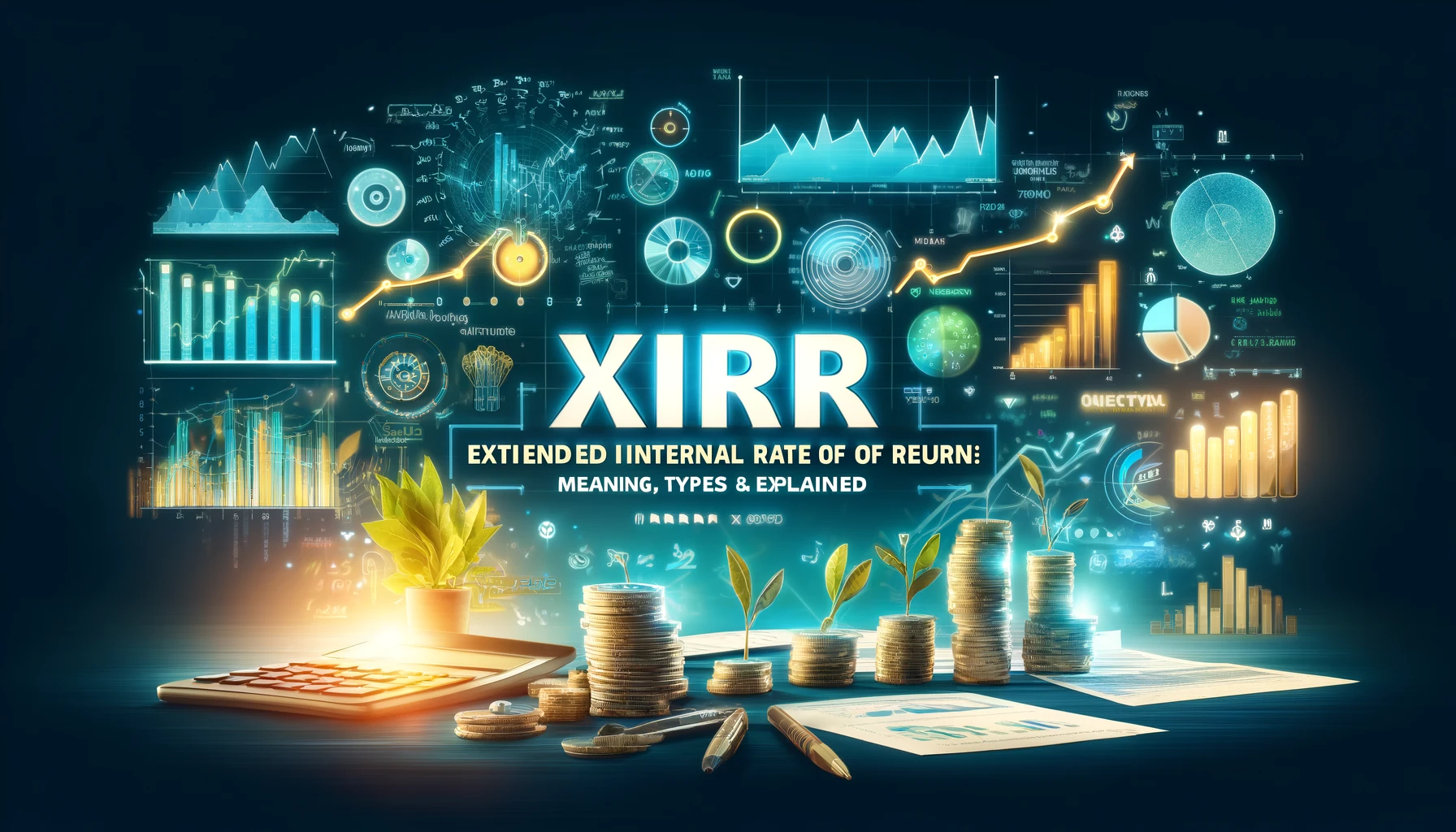Mutual funds have become an attractive investment avenue for Non-Resident Indians (NRIs) due to their potential for long-term wealth creation. However, understanding the tax implications is crucial to avoid unexpected liabilities. This blog explains in detail how NRIs are taxed on their mutual fund investments in India, covering capital gains, TDS, and double taxation treaties. Whether you’re investing in equity or debt funds, understanding the tax obligations is essential for proper financial planning.
Table of Contents
- Introduction to Mutual Funds for NRIs
- Capital Gains Tax on Mutual Funds
- Long-term and Short-term Gains
- Historical Tax Data (2010-2024)
- Tax Deducted at Source (TDS) on Mutual Funds for NRIs
- Double Taxation Avoidance Agreement (DTAA)
- Section 80C Deductions for NRIs
- Tax Rates Based on Mutual Fund Type
- Equity vs Debt Funds
- Exemptions and Reductions
- Historical Returns on Equity and Debt Mutual Funds
- Table: 10-Year Returns on Popular Mutual Funds
- How to File Tax Returns in India for NRIs
- Conclusion: Key Takeaways on Taxation for NRIs
1. Introduction to Mutual Funds for NRIs
Mutual funds allow NRIs to invest in India’s growing economy while offering the flexibility to diversify across different asset classes. NRIs can invest in mutual funds under the Foreign Exchange Management Act (FEMA) guidelines. However, mutual fund investments come with tax obligations that NRIs need to be aware of.
For example, taxes on mutual funds for NRIs depend on the type of fund and the duration of the investment. The two main types of taxes are capital gains tax and Tax Deducted at Source (TDS).
2. Capital Gains Tax on Mutual Funds
Long-Term and Short-Term Gains
The capital gains tax for NRIs depends on how long the investment is held:
- Short-term capital gains (STCG): Gains from equity mutual funds held for less than 12 months are taxed at 15%. For debt funds, gains held for less than 36 months are added to the income and taxed based on the income tax slab.
- Long-term capital gains (LTCG): Gains from equity funds held for more than 12 months are taxed at 10% if the profit exceeds ₹1 lakh. For debt funds held for more than 36 months, the tax rate is 20% with indexation benefits.
Historical Tax Data (2010-2024)
| Year | STCG (Equity) | LTCG (Equity) | STCG (Debt) | LTCG (Debt) |
|---|---|---|---|---|
| 2010 | 15% | Exempt | As per slab | 20% |
| 2015 | 15% | 10% (Above ₹1L) | As per slab | 20% |
| 2020 | 15% | 10% (Above ₹1L) | As per slab | 20% |
| 2024 | 15% | 10% (Above ₹1L) | As per slab | 20% |
3. Tax Deducted at Source (TDS) on Mutual Funds for NRIs
For NRIs, mutual funds are subject to TDS. The rates differ based on the type of mutual fund and the holding period:
- TDS on Equity Mutual Funds: 15% for short-term capital gains and 10% for long-term capital gains exceeding ₹1 lakh.
- TDS on Debt Mutual Funds: For short-term capital gains, TDS is deducted as per the applicable income tax slab. For long-term capital gains, TDS is deducted at 20% with indexation.
| Investment Type | Short-Term TDS | Long-Term TDS |
|---|---|---|
| Equity Funds | 15% | 10% (>₹1L) |
| Debt Funds | As per slab | 20% with indexation |
4. Double Taxation Avoidance Agreement (DTAA)
India has signed DTAAs with many countries, which allows NRIs to avoid double taxation on income earned in India. If the country of residence has a DTAA with India, NRIs can claim tax relief based on the provisions in the agreement.
To avail DTAA benefits, an NRI needs to submit Form 10F and Tax Residency Certificate (TRC). This ensures that the NRI’s income from mutual funds is either exempt from double taxation or is taxed at a lower rate.
5. Section 80C Deductions for NRIs
NRIs can also benefit from tax deductions under Section 80C of the Income Tax Act. NRIs can claim deductions for investments in ELSS (Equity Linked Savings Scheme) mutual funds, which are eligible for a deduction of up to ₹1.5 lakh per financial year.
This deduction reduces the overall tax liability on the taxable income of the NRI.
6. Tax Rates Based on Mutual Fund Type
There are different tax rates applicable for equity and debt mutual funds for NRIs:
- Equity Mutual Funds: For short-term holdings (less than 12 months), the tax is 15%. Long-term gains above ₹1 lakh are taxed at 10%.
- Debt Mutual Funds: For short-term holdings (less than 36 months), the tax is based on the income slab rate. For long-term holdings (more than 36 months), the tax rate is 20% with indexation.
7. Exemptions and Reductions
Certain tax exemptions are available for NRIs:
- Long-term capital gains exemption for equity mutual funds below ₹1 lakh.
- NRIs from countries with DTAAs can get reduced tax rates based on their country of residence.
- Indexation benefit for debt mutual funds, which allows adjusting the purchase price based on inflation, reducing taxable gains.
8. Historical Returns on Equity and Debt Mutual Funds
Here’s a table showcasing historical returns on popular mutual funds in India:
| Mutual Fund Name | 5-Year Return (%) | 10-Year Return (%) | 2023 Return (%) |
|---|---|---|---|
| HDFC Equity Fund | 12% | 14% | 10% |
| SBI Bluechip Fund | 13% | 15% | 11% |
| Axis Long Term Equity | 14% | 16% | 12% |
| ICICI Prudential Debt | 6% | 8% | 5% |
| Kotak Corporate Bond Fund | 7% | 9% | 6% |
9. How to File Tax Returns in India for NRIs
Filing tax returns in India as an NRI can be done online through the Income Tax Department’s e-filing portal. NRIs need to submit Form ITR-2 if they have income from mutual funds, capital gains, or any other sources.
Steps to file tax returns:
- Log in to the e-filing portal.
- Choose the applicable ITR form (ITR-2 for mutual fund income).
- Report capital gains and TDS deductions.
- Submit Form 10F and TRC if applying for DTAA benefits.
- Verify and submit the return electronically.
10. Conclusion: Key Takeaways on Taxation for NRIs
Investing in mutual funds as an NRI offers significant growth potential. However, it is essential to understand the tax implications. Taxation on capital gains, TDS, and the availability of DTAA can influence your net returns. Make sure to plan your investments and tax obligations carefully to ensure optimal gains and compliance.

What are Dividend Yield Mutual Funds?
Dividend yield mutual funds are designed for investors seeking a steady income source from their …

What Is Children’s Mutual Fund?
Children’s mutual funds are specially designed to help parents and guardians build a secure financial …

What are Alpha and Beta in Mutual Funds?
In mutual fund investing, understanding performance metrics like Alpha and Beta is essential for assessing …

Sovereign Gold Bonds vs Mutual Funds
For Indian investors seeking diverse investment opportunities, both Sovereign Gold Bonds (SGB) and mutual funds …

What Is Risk-Return Trade-Off in Mutual Funds?
In mutual fund investments, the risk-return trade-off is a fundamental concept that helps investors balance …

What is a Mutual Fund Manager?
A mutual fund manager plays a crucial role in the success of a mutual fund, …

Debt vs Equity Funds
Investing in mutual funds offers various avenues, with debt and equity funds standing out as …

What are the Different Types of Index Funds?
Index funds have gained popularity among Indian investors for offering a low-cost, diversified approach to …

What is CAMS KRA?
CAMS KRA (Computer Age Management Services KYC Registration Agency) is a crucial player in India’s …

What is Yield to Maturity?
Yield to Maturity (YTM) is a crucial concept in fixed-income investments, especially in mutual funds …

What are Thematic Funds?
In the Indian share market, Thematic Funds have gained popularity as specialized mutual funds tailored …

What is Broad Market Index Fund?
In the Indian share market, Broad Market Index Funds offer a straightforward, cost-effective way for …

What are Retail Fund?
In the Indian financial market, Retail Funds are a key category of mutual funds designed …

What is Regional Fund?
In the evolving landscape of the Indian financial market, Regional Funds have emerged as a …

Can Mutual Funds Change Expense Ratio?
Investing in mutual funds involves paying various fees, one of the most important being the …

What is the Inverted Yield Curve?
In financial markets, the yield curve is a key indicator that investors and economists use …

What are Dynamic Asset Allocation Funds?
Dynamic asset allocation funds, also known as balanced advantage funds, are becoming increasingly popular in …

What are Short Term Capital Gains on Mutual Funds?
Investing in mutual funds has become an increasingly popular way for investors to diversify their …

What are Corporate Bond Funds?
Corporate bond funds are a type of debt mutual fund that invests primarily in high-rated …

What Are Money Market Funds?
Money Market Funds (MMFs) are a type of mutual fund that invests in short-term debt …

What is a Fund of Funds?
A Fund of Funds (FoF) is a mutual fund that invests in other mutual funds …

What is a Credit Risk Fund?
A credit risk fund is a type of debt mutual fund that primarily invests in …

What are Gold Funds?
Gold funds are a type of mutual fund that invests in gold-related assets, including gold …

What is Counterparty Risk?
In the world of investments, especially in Indian share market mutual funds, the concept of …

What is a sinking fund?
In the world of finance and investments, planning ahead for future liabilities is crucial for …

What is IDCW in a Mutual Fund?
Investing in mutual funds offers several options for investors looking to grow their wealth over …

What are growth funds?
Growth funds are a type of mutual fund that primarily focuses on capital appreciation by …

CAGR vs Absolute Returns
When investing in mutual funds, understanding your returns is essential to make informed decisions. Two …

What is a Capital Protection Fund?
A Capital Protection Fund (CPF) is a type of hybrid mutual fund designed to safeguard …

What Is Rupee Cost Averaging in Sip?
Rupee Cost Averaging (RCA) is a systematic investment strategy used in mutual fund investments, particularly …

What are Gilt Funds
Investing in mutual funds can be an excellent way to grow your wealth while managing …

What is Target Maturity Funds?
Target Maturity Funds (TMFs) have gained attention in the Indian share market, offering a unique …

What is KIM?
When investing in Indian mutual funds, investors often come across a document known as the …

Trailing Returns vs Rolling Returns
When analyzing mutual fund performance, understanding returns is crucial for making informed investment decisions. Two …

What is Hybrid Mutual Fund?
When investing in mutual funds, you typically aim to find the right balance between risk …

What is XIRR?
Investing in mutual funds is a popular choice for many investors in India, thanks to …

What is the Sharpe ratio?
In the world of mutual fund investing, one of the most crucial aspects to consider …

What is AMFI?
The Indian mutual funds industry has grown exponentially over the past two decades. This growth …

What is Rolling Returns?
Investing in mutual funds requires understanding various performance metrics to make informed decisions. One such …




















